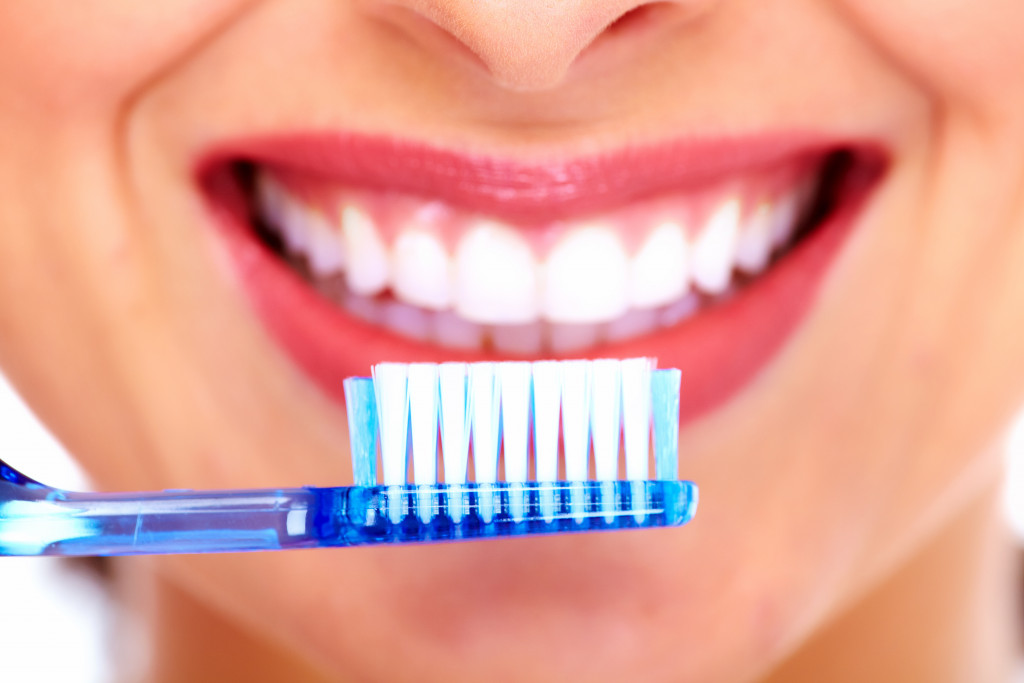- Poor oral hygiene can lead to many serious problems, such as tooth decay, gum disease, and bad breath.
- To prevent these issues, it’s important to brush twice daily, floss once a day, and use an antibacterial mouthwash.
- Limiting sugar, fluoride products, and chewing sugar-free gum can also help improve dental health.
- Regularly caring for your oral hygiene will ensure you maintain a healthy mouth and smile for years to come.
Good oral hygiene is essential for a healthy mouth, teeth, and gums. Poor oral hygiene can lead to many serious problems, ranging from painful tooth decay to dangerous health conditions. Knowing the potential adverse effects of poor oral hygiene can help you adjust your habits to improve your dental health. Here are five adverse effects of poor oral hygiene.
1. Tooth Decay
One of the most serious consequences of poor oral hygiene is tooth decay. Tooth decay happens when bacteria build up plaque on the teeth and feed off sugar from food particles in the mouth. The bacteria produce acids that corrode enamel and cause cavities. If left untreated, cavities can lead to pain, infection, and tooth loss.
Here are some ways you can prevent and treat tooth decay:
Brush and Floss Regularly
Brushing your teeth at least twice a day and flossing once daily are key steps for preventing tooth decay. Brushes should have soft bristles and be replaced every three months or when the bristles start to fray. When brushing, use circular motions with the brush angled toward the gum line and clean all surfaces of the teeth, including the back sides. During flossing, gently slide up and down between each tooth without snapping the floss into place, as this can cause injury to the gums and mouth.
Avoid Sugary Foods and Drinks

Sugary foods like candy or soda majorly contribute to cavities because they feed plaque buildup on teeth. Limit your sugary snacks and drinks intake and opt for tooth-friendly foods like raw fruits and vegetables. Brush your teeth immediately afterward if you choose to eat or drink something sweet.
Use Fluoride
Fluoride helps to prevent cavities by strengthening the enamel on teeth, which makes them more resistant to plaque acids. Fluoride can be found in water supplies, toothpaste, mouthwashes, and dental treatments at the dentist’s office. Adults should use a fluoride toothpaste with 1,450 – 2,550 ppm (parts per million) of fluoride, while children under six years old should use a lower concentration paste with 500–1,000 ppm of fluoride.
Visit The Dentist Regularly
Visiting the dentist regularly is essential for keeping teeth healthy and detecting early signs of decay. During a check-up, the dentist will examine your teeth, gums, and mouth to look for any issues that need to be addressed. Your dentist may also recommend implants if there is too much damage. By utilizing dental implants for tooth decay, your dentist can help restore the function and aesthetics of your mouth.
2. Gum Disease
Another potential problem caused by poor oral hygiene is gum disease. Gum disease occurs when plaque builds up near the gum line due to inadequate brushing and flossing, causing the gums to become inflamed and swollen. In advanced cases, this inflammation can cause the gums to pull away from the teeth, leading to bone loss around the teeth. If left untreated, gum disease can eventually lead to tooth loss. Brushing twice daily, flossing once a day, and visiting the dentist regularly are essential for preventing gum disease.
3. Bad Breath

A common symptom of poor dental hygiene is bad breath. This can be caused by bacteria in the mouth that builds up due to inadequate brushing and flossing or food particles left between the teeth and gums. Bad breath can be embarrassing and make it difficult to talk to others without feeling self-conscious. To prevent bad breath, it is essential to brush your teeth twice a day, floss daily, and use an antibacterial mouthwash such as Listerine. Additionally, chewing sugar-free gum or using mints can help neutralize odors from food particles left in the mouth.
4. Receding Gums
Poor oral hygiene can also lead to receding gums. This happens when plaque builds up near the gum line and causes the gums to pull away from the teeth, exposing more of the tooth’s root and making it vulnerable to decay. Additionally, receding gums can cause sensitivity in the exposed area and make it difficult to eat or speak without pain. To prevent this problem, it is important to brush twice a day and floss once a day, as well as visit your dentist regularly for check-ups and cleanings.
5. Difficulty Eating and Speaking
Finally, poor dental hygiene can cause difficulty eating and speaking. This happens because plaque buildup can cause inflammation in the mouth, which makes chewing painful. Additionally, food particles left in the mouth can cause bad breath and make speaking difficult. To prevent these problems, it is important to brush twice a day, floss once a day, and visit your dentist regularly for check-ups and cleanings.
Final Words
In the end, poor oral hygiene can seriously affect your overall health and well-being. It can lead to tooth decay, gum disease, bad breath, receding gums, and difficulty eating or speaking. To ensure you are taking the necessary steps to prevent these problems, it is important to brush twice daily, floss once a day, use an antibacterial mouthwash such as Listerine, and visit the dentist regularly for check-ups and cleanings. These steps can help you maintain a healthy mouth and smile for years.


